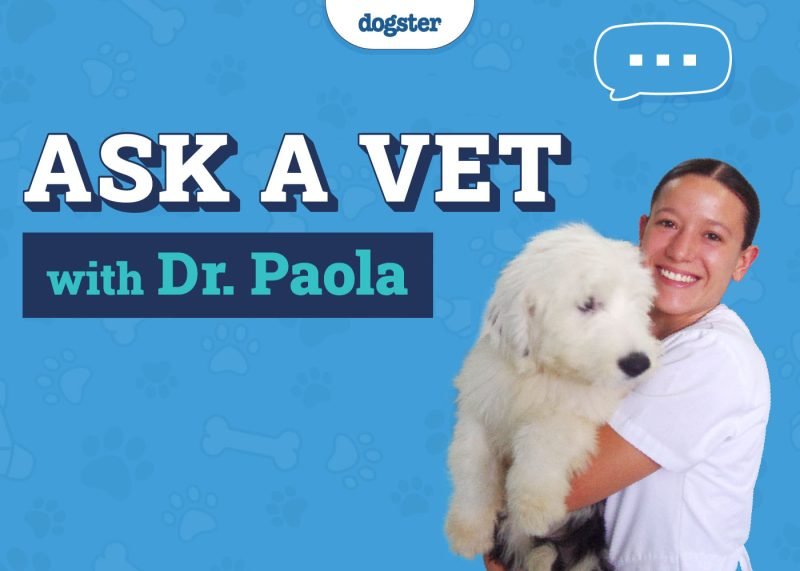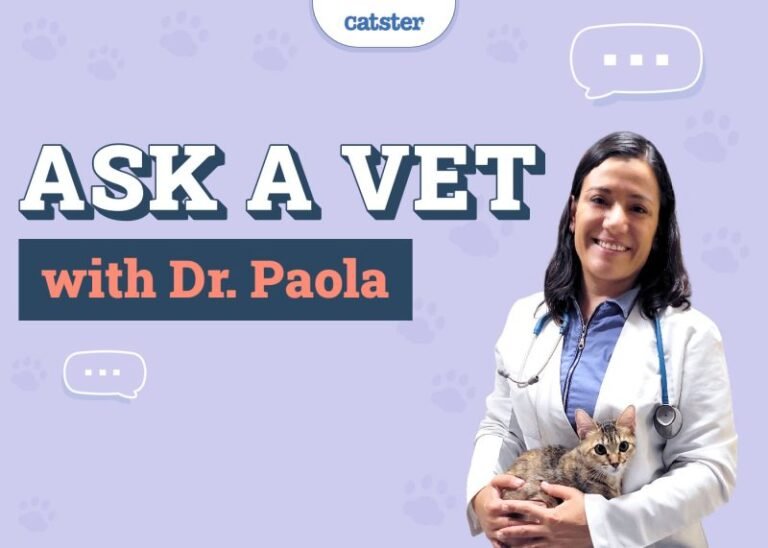

Welcome to our “Ask Dr. Paola” series, where every Monday we bring expert advice straight from Dr. Paola Cuevas (MVZ) to help our readers better understand their dog’s health and well-being.
Whether you’re a new pet parent or a seasoned dog lover, Dr. Paola is here to provide answers to your most pressing questions. From nutrition tips and preventive care to troubleshooting common behavioral issues, Dr. Paola is ready to offer insights that will keep your furry friend happy and healthy. Stay tuned for expert guidance on a range of topics that matter most to you and your dog, so you can make informed decisions and provide the best possible care for your canine companion. Have a question? Send it in here!

Help! My Dog Needs Teeth Removed!
“Where can I get help to have all of my little dog Rambo’s teeth removed? He is already an adult, 12 years old, and he is a Poodle. They want to charge me $1,050.00.“– Migdalia
Hi Migdalia,
I understand how concerning it can feel to hear that Rambo may need full dental extractions, especially at his age. At 12 years old, anesthesia requires special care, but with modern protocols, pre-anesthetic testing, and close monitoring, it is generally safe when performed by an experienced veterinarian. Sometimes it is best to remove all diseased teeth in one session to avoid putting a senior dog under anesthesia twice, but in other cases where there are heart, kidney, or liver concerns, splitting the extractions into two shorter procedures can be safer. The decision depends on Rambo’s overall health and should be guided by bloodwork and a complete anesthetic risk assessment.
If the estimate you received feels difficult to manage, you might explore other clinics, universities with veterinary teaching hospitals, or local practices that work with mobile dental services, as these can sometimes offer lower costs. You may also try these steps. Before proceeding, ask for a thorough oral exam under anesthesia with dental X-rays, since this helps identify exactly which teeth require removal. From there, you and your veterinarian can decide on the safest and most affordable treatment plan, keeping Rambo’s comfort and quality of life at the center of every decision. I hope this helps.
Best,
– Dr. Paola

If you want real time answers to your questions, you can talk to one of our veterinarians online. Click on the image or button below:


Help! I Think My Dog Has Allergies!
“Dear Dr. Paola,
CiCi is a five-year-old Goldendoodle who weighs approximately 70 pounds. Initially, she was on Royal Canin for many years, but when that became too expensive, I started exploring other options. Recently, I tried Nutra freeze-dried beef food, and I’ve noticed an improvement in her breath and teeth within just one week. Unfortunately, that food is also quite pricey.
While she scratches less than before, she still has scabs where she bites or scratches herself. I’m beginning to wonder if she has allergies to chicken or beef, although I’m not certain. I previously tried allergy shots, but they upset her stomach and didn’t seem to help her condition.Should I consider feeding her only salmon and white fish, along with sweet potatoes and rice? I would appreciate any guidance on how to help her. She is worth every penny to me, and I just need to find a solution to help her stay healthy, and one that is affordable.“ – Ruby
Hi Ruby,
I can hear how deeply you care for CiCi, and it is wonderful that you are paying such close attention to both her comfort and her diet. The improvements you noticed with the freeze-dried food are consistent with what we often see when dogs transition to less processed diets, particularly in oral health and overall vitality. However, the persistent skin irritation and scabs do raise the possibility of an underlying allergy, and in dogs, this is often related not just to food, but also to environmental triggers such as pollens, dust mites, or even flea saliva. It is important to keep in mind that food allergies account for a relatively small proportion of skin disease in dogs, typically less than 10 percent, according to clinical dermatology texts.
If you are considering a food trial, it needs to be done very systematically. A balanced veterinary therapeutic diet designed for elimination trials is best, because home-prepared versions using salmon, white fish, sweet potato, and rice may not provide all essential nutrients. Even when using limited ingredients, the risk of nutritional imbalance over time is real, especially for a large-breed dog like CiCi. If food allergy is suspected, a strict diet trial for at least 8 to 12 weeks with a novel protein or hydrolyzed protein diet is the gold standard for diagnosis. This means feeding only that food, with no treats or flavored medications during the trial, and then monitoring for resolution of the skin signs.
Since CiCi has already tried allergy injections without success, it may be valuable to consult with a veterinary dermatologist if one is available to you. They can help determine whether her condition is primarily food-related, environmental, or a combination.In the meantime, you could discuss with your veterinarian more affordable veterinary diets for elimination trials or balanced home-prepared recipes developed with the guidance of a veterinarian or veterinary nutritionist. This approach gives you both a clearer diagnostic path and ensures her nutritional needs are met while you search for the best long-term solution.
Best,
– Dr. Paola

Help! My Dog Has Red Inside His Ears!
“Hi Dr. Paola,
Dorval scratches his ears, and he has redness inside. Does this have to be treated by a vet or could he use an over-the-counter med?” – Syma
Hi Syma,
Ear scratching accompanied by redness inside the ear is usually a sign of discomfort and inflammation, and it should not be managed with over-the-counter products without first determining the cause. Dogs commonly develop ear problems due to ear infections, allergies, or ear mites. Each requires a different approach, and treating without knowing the underlying reason can make things worse. For example, applying certain medications without first checking the eardrum’s integrity may lead to permanent damage if the eardrum is ruptured.
The safest step is to have Dorval examined by a veterinarian. A proper ear exam and cytology, which looks at the material in the ear under a microscope, will identify whether the irritation is due to yeast, bacteria, mites, or another cause. This ensures the correct treatment is prescribed and prevents prolonged discomfort or complications. In the meantime, avoid cleaning the ears with home remedies or applying human ear drops, as these can irritate the ear canal further. Since this is a situation where a direct hands-on exam is essential, arranging a veterinary visit is strongly recommended.
Don’t wait,
– Dr. Paola
- View past week’s questions here: October 13, 2025
- See our full list of past articles here
- Click here to submit a question
- Get Dr. Paola’s weekly advice sent straight to your inbox. Sign up below!






